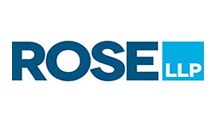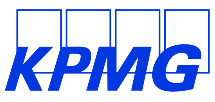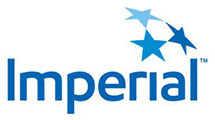The Use Of A Chess Clock In Arbitration Proceedings
by Harvey J. Kirsh, B.A., LL.B., LL.M., C.S., C.Arb.
 The cost of a chess clock generally ranges from $20 to $300, and could be precision analog or digital; mechanical or quartz; wood, plastic or steel; and wind-up or battery-operated. They are typically used to facilitate chess play; but, as indicated in this article, they can also be employed as a time management technique, along with time limits and a few firm rules, to reduce the cost and length of an arbitration proceeding.
The cost of a chess clock generally ranges from $20 to $300, and could be precision analog or digital; mechanical or quartz; wood, plastic or steel; and wind-up or battery-operated. They are typically used to facilitate chess play; but, as indicated in this article, they can also be employed as a time management technique, along with time limits and a few firm rules, to reduce the cost and length of an arbitration proceeding.
Chess clocks are typically used to streamline chess play. But they may also be used to streamline counsel submissions, witness testimony and hearing time in an arbitration proceeding.
Chess clock procedure is a time management technique designed to reduce the cost and length of an arbitration hearing. Where the parties agree to adopt the procedure, the duration of the hearing is strictly prescribed in advance.
Dr. Karl-Heinz Böckstiegel (Professor Emeritus of the Law Faculty of the University of Cologne) has been credited with the development of chess-clock arbitration, which contemplates that each party would dispose of a finite amount of time during the hearing, subject to time limits and a few firm rules. The time limits and rules would typically be addressed at the preliminary pre-hearing arbitration conference, at the same time that other procedural considerations are settled.
Each party is assigned, for their use as they see fit, a fixed equal proportion of the time for both opening and closing submissions, and for the examinations and cross-examinations of both fact and expert witnesses. It is possible that an arbitrator might impose a non-equal division of time, in circumstances where the parties are required to cross-examine different numbers of witnesses. Some time is also allocated for the arbitrator to question parties and witnesses. Once the prescribed time has elapsed, no further submissions or examinations are permitted and time extensions are often not granted, except by agreement between the parties and with the permission of the arbitrator. Counsel are generally reluctant to agree, however, and tend to oppose any order granting a time extension for one party, presumably based on the concern that this would mean that the parties are not treated equally and that both of them would not have the same full and fair opportunity to present their case.
In a recent study conducted by Queen Mary’s School of International Arbitration, respondents reported that arbitrators adopted the chess clock method in 36% of arbitrations, with a further 31% of arbitrators allocating time-limits for specific stages of the hearing.
Strategic Considerations – Planning and Preparation
At the preliminary pre-hearing arbitration conference, the arbitrator will solicit submissions from the parties as to the total time to be allocated for the entire hearing, and the specific time to be assigned to each party.
Rules must also be established for how time is to be deducted from each party’s time allocation. Typically, time spent on opening and closing submissions, and for the examinations and cross-examinations of witnesses, constitute clear uses of the allocated time. However, questions asked by the arbitrator and time spent on administrative matters will generally not be counted against either party. The arbitrator has the authority to determine whose time is used up when an objection is made and time is spent on argument. If the objection were to be successful, then the time would likely be deducted from the party resisting the objection, whereas time taken to make an unsuccessful objection would be allocated against the party who raised the objection. Anticipating that result may drive the decision of counsel as to whether to lead marginally irrelevant or inadmissible evidence which may generate an objection, or alternatively in making unwarranted or borderline objections.
The parties and their counsel should be mindful of the fact that imposing strict time limits on the arbitration hearing, through the use of a chess clock procedure, would allow the parties greater control and flexibility over the proceeding; would enable the parties to resolve the dispute quickly with a view to preserving their ongoing business relationship; and would assist in keeping the arbitrator’s fees in check.
A critic of the chess clock procedure argued that it may possibly deny the parties due process:
“Firstly, either party may be denied sufficient opportunity to put in their case, including the opportunity to present all of their evidence to the tribunal.
Secondly, allocating equal time to each party assumes that each case is similarly complex. The perception is that a party with a more complex case is disadvantaged by having less time to present their case in real terms compared to their opponent.
Lastly, the chess clock may unduly disadvantage the respondent. Whereas the complainant has many months or years to consider their case before issuing a notice of dispute the respondent is captured by tight time frames in which to rebut claims against them. These risks can be minimized by ensuring that the parties have an adequate opportunity to prepare for the hearing, including marshalling the evidence that they will rely upon”.
Having said that, one arbitrator has stated that
“In every case in which I have been involved where a chess clock has been used, the time limit has forced the parties to present only material and relevant evidence, and it has avoided cumulative and unnecessary testimony.”
In virtually every arbitration over which I have presided, counsel have resisted subscribing to the use of a chess clock as a time management technique in order to streamline the hearing and to make it more cost-effective, perhaps, in part, because their litigation background has not prepared them yet for the transition to arbitration.
In my view, it is clear that the chess clock procedure should not be imposed upon the parties, and should only be used where counsel feel sufficiently confident that they are able to stickhandle their way through the arbitration hearing in a reasonably efficient manner. And feeling that they will have a full and fair opportunity to be heard.
Harvey J. Kirsh, of Kirsh Construction ADR Services Ltd., has been recognized in numerous peer review catalogues as one of Canada’s leading arbitrators and mediators, and was the recipient of the Ontario Bar Association’s Awards of Excellence in both Alternative Dispute Resolution and Construction and Infrastructure Law. His bio and contact information may be accessed at http://kirshadr.com/.













